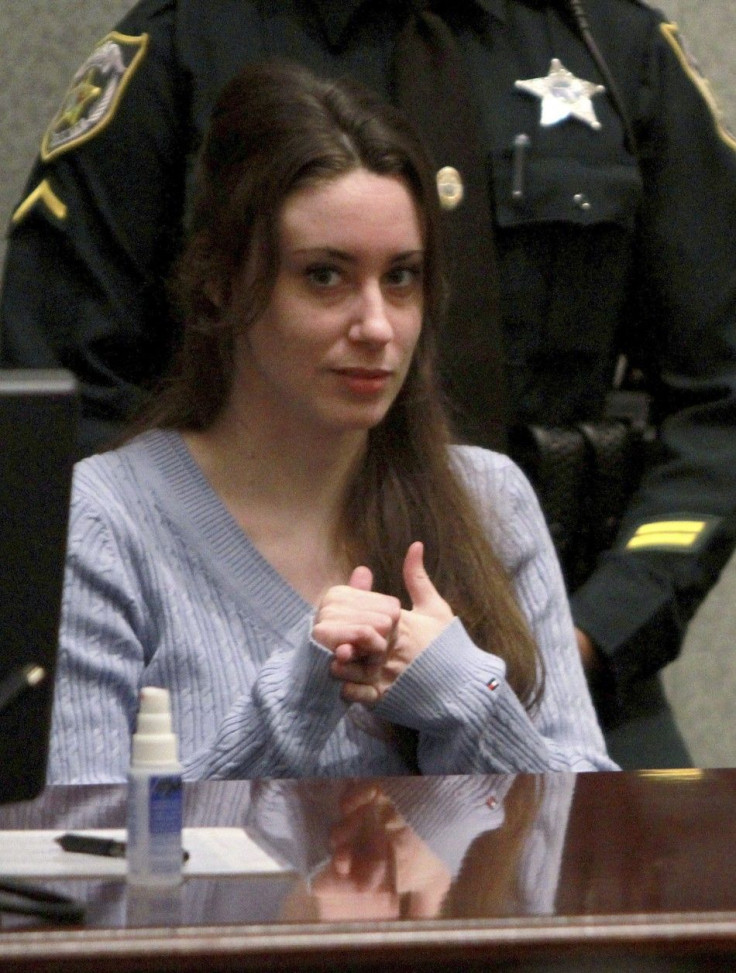Casey Anthony jurors' names may be released after a cooling-off period

Casey Anthony's jurors may remain anonymous only for a while.
Judge Belvin Perry, who oversaw the Casey Anthony case, refused Thursday to release the names of the jurors who acquitted the Florida mom of murdering her 2-year-old daughter, out of concerns about their safety.
Despite petitions from four Florida news organizations and the Associated Press for the names to be made public, he said the names will not be released Friday, and he indicated that he will consider setting a cooling-off period after which the names might be released, but he did not say exactly when he will anounce a new decision.
It is no big secret that some people disagree with their verdict. And some people would like to take something out on them, Perry said. Is the court totally powerless when it comes to folks' safety?'
In an extensive hearing today, Perry asked the media organizations' attorneys a series of questions surrounding a central idea: whether potential threats to the jurors' safety and the attention they would receive from the media outweigh any public interest in having the names released, according to a report by CNN.
I feel for individuals who simply wanted to do their civic duty, the judge said. Our landscape in this country has changed. People have no reservation...about walking up to an individual, pulling a gun or knife...and because they disagree with them, hurt them or kill them.
Attorney Rachel Fugate, who represents the Orlando Sentinel and the Associated Press, argued that juror information is presumptively available to the public.
But Perry asked about cases that are exceptions, and said one of the jurors has very serious security concerns. He said people had reached out to the jurors' relatives even without their names being released.
Perry used himself to illustrate the media frenzy and its impact. I can't even go to lunch now across the street without being surrounded by cameras.
Fugate argued releasing jurors' names would help the public understand the verdict better.
Perry noted that jurors may choose to come forward. For example, one has already spoken to ABC on the record, and another one has commented on the jury's deliberation anonymously.
Casey Anthony Murder Trial
Anthony, 25, was found not guilty Tuesday of murdering her 2-year-old daughter Caylee.
The seven-woman, five-man jury took about one day to reach a verdict in the case, which had gripped much of the nation in considerable part due to the prosecution's argument that Casey had murdered the girl so she could pursue an active night life/social life, unencumbered by parenthood.
Casey Anthony was found not guilty on all charges except for four counts of providing false information to law enforcement officers. She will be spared a death sentence, but could still potentially face years behind bars in a Florida prison.
The prosecution had claimed Casey Anthony suffocated her daughter with duct tape in June 2008, then stored the body in the trunk of a car. Casey Anthony didn't report the toddler was missing for 31 days.
Conversely, the defense had concentrated on the prosecution's forensic evidence, including an FBI technician's testimony that duct tape found attached to Caylee Anthony's decomposed skull was contaminated during testing by another technician.
The jury deliberated for more than 10 hours over the last two days and after hearing 33 days of testimony.
The 12 jurors on Monday spent about six hours dissecting the case following a rebuttal summation by the prosecution. Judge Belvin Perry separated the main jury of seven women and five men from five alternates and sent them into the deliberation room just after noon, msnbc.com said.
Thursday morning, Casey Anthony was sentenced to four years in prison for lying to investigators, but will go free next week due to time served.
© Copyright IBTimes 2024. All rights reserved.











